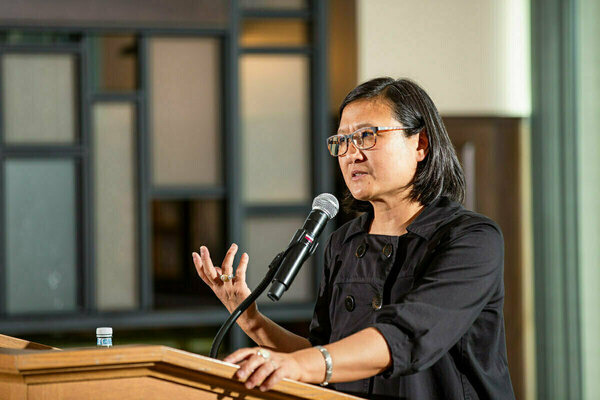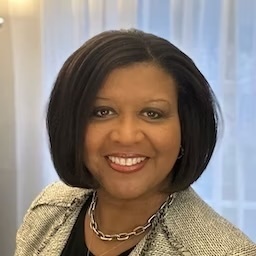
The Inclusive Leadership Colloquium Lecture Series (ILCLS) concluded its inaugural year of programming this spring with keynote presentations by two nationally recognized experts in developing an inclusive mindset and behaviors.
Sponsored by the Office of Institutional Transformation in partnership with Notre Dame Human Resources and the Office of the Provost, ILCLS seeks to develop a stronger and more intentional community of practice among Notre Dame leaders to help the University enhance its culture and climate while also achieving its goals related to diversity, equity, and inclusion.
“Throughout this series our goal has been to promote inclusive excellence through academic inquiry, programming, engagement and community building,” said Keona Lewis, assistant provost for academic diversity and inclusion. “We pursued that goal by bringing both internal and external voices who would speak to the current state of DEI as well as provide insights and strategies on how we might expand our capacity for building a Beloved Community.”

The external speakers invited to campus were Jennifer Ho, professor of ethnic studies and director of the Center for Humanities and the Arts at the University of Colorado in Boulder and Tia Brown McNair, vice president in the Office of Diversity, Equity, and Student Success and executive director for the Truth, Racial Healing, and Transformation Campus Centers at the American Association of Colleges and Universities in Washington, D.C.
During Ho’s talk, titled “My Path to Anti-Racism as an Asian American Educator,” she explained that “none of us are born into this work of anti-racism or ending intersectional oppression, but it is work that all of us, regardless of our identities, are capable of choosing.”
As the daughter of a refugee father from China and an immigrant mother from Jamaica, she shared an overview of her experiences with race and racism—including how people who meet her often center her race in their introductory conversations. “If you have an Asian face in the United States, you get one of two questions: ‘What are you?’ or ‘Where are you from?’” Ho doesn’t always answer these questions, at least not in the way her interrogators might expect. Instead, she might share that she lives in Boulder, Colo., or that she was born in Flushing, N.Y. Her purpose isn’t to be evasive but to redirect the conversation to something that might provide a more meaningful connection, such as food, music, hobbies, or movies.
Her point? She is more than her race and ethnicity and any assumptions, prejudices, or stereotypes that might accompany such a reductive categorization. Everyone has the capacity to become more aware of race, racism, and the actions that can be taken to address patterns and systems that marginalize certain groups of people. Ho suggests that people educate themselves by taking an anti-racism course, attending a free bystander training, or volunteering with organizations.
McNair’s presentation expounded on her book From Equity Talk to Equity Walk: Expanding Practitioner Knowledge for Racial Justice in Higher Education. While acknowledging that many institutions create well-meaning aspirational goals around diversity, equity, and inclusion, she pointed out that it’s important to clarify the steps needed to realize the goals. “Our intent is not enough. That’s the equity talk,” she said. “It’s when we actually change our practice” that we get to the equity walk.
To guide this examination of current reality versus ideal state, she suggested asking this question: What will our communities look, feel, and be like when there is no longer a false belief in a hierarchy of human value? That hierarchy could be based on race and ethnicity, but it could also be based on socioeconomic status, geographic location, sexual orientation, gender, or other categorizations.
“We have to be willing to have those conversations that bias actually exists … that harm has happened. This process can’t happen without truth-telling, building relationships needed to move forward, and healing,” she said. People must be able to engage in such conversations “without feeling attacked, or silenced, or that your experiences are devalued.”
ILCLS organizers are meeting this summer to determine the format for next year’s colloquium, using feedback from the recent lecture series to inform potential topics and presenters.
“It has been incredibly heartening to witness and indeed to be a part of such forward-looking gatherings,” said Hugh Page, vice president for institutional transformation and advisor to the president. “Our discussions, while sobering at times, have been at once open, probing, pragmatic and hopeful. This is exactly what one would desire in a community dedicated to research, teaching, and learning. My hope is that the good work we have begun and the seeds we’ve planted will continue to bear fruit in the weeks and months ahead.”